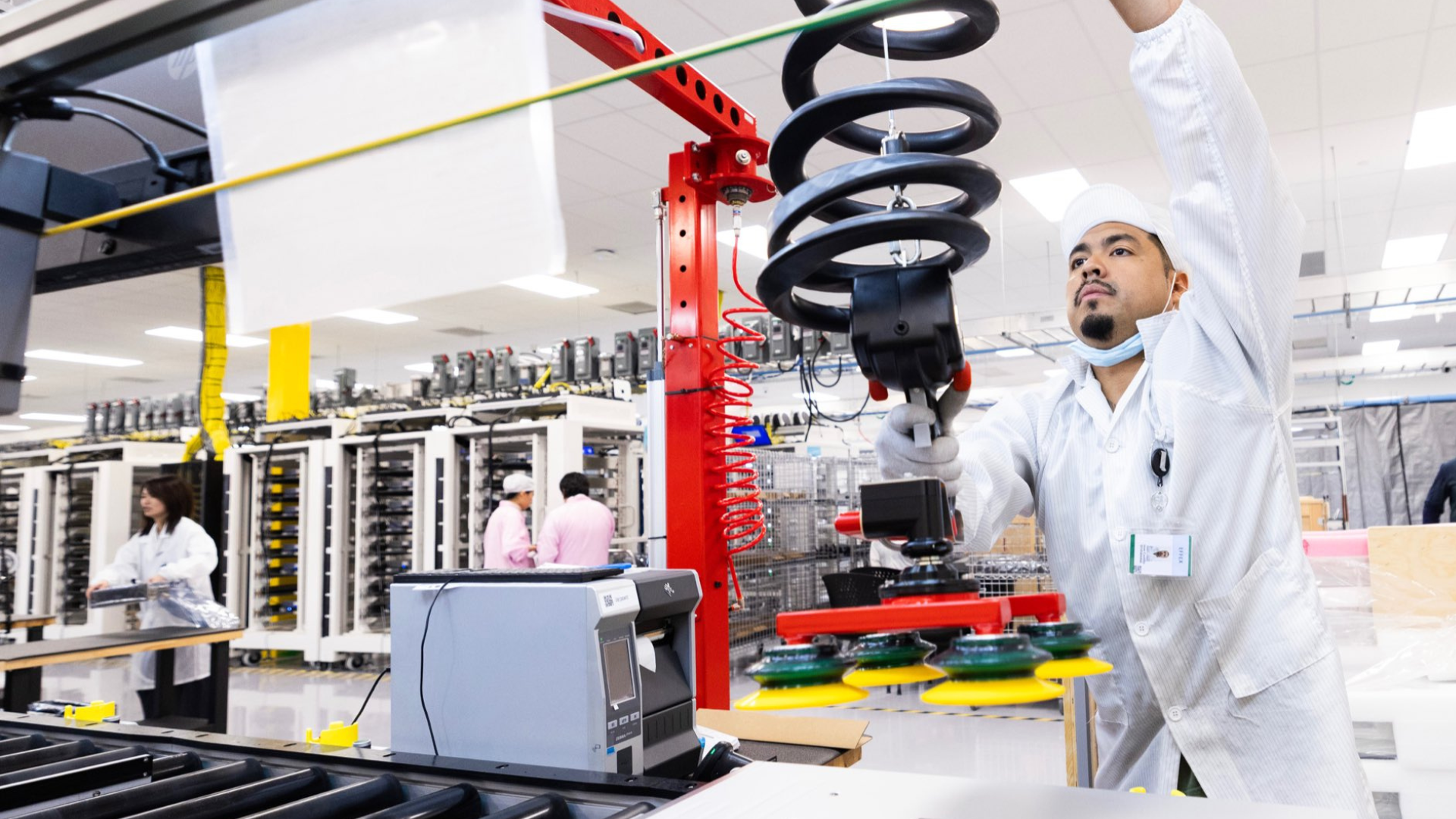Apple's Houston-built AI servers are now shipping, according to CEO Tim Cook — custom silicon to power Private Cloud Compute
Apple has begun deploying custom silicon servers from a new US facility to power Private Cloud Compute, its privacy-first AI backend.

Apple CEO Tim Cook took to X yesterday, October 23, to announce that Apple’s “American-made advanced servers” have begun shipping from a new Houston facility to Apple’s own data centers.
Apple has spent years outsourcing virtually all its server manufacturing abroad, but what’s being made in Houston is no generic rack; it’s the backbone of Private Cloud Compute, the company’s answer to cloud AI and a critical piece of infrastructure for scaling Apple Intelligence when local NPUs aren’t enough.
Originally announced in 2024, Apple PCC is part of a $600 billion US investment pledge by Apple that includes significant capital outlay for homegrown server capacity.
Apple’s American-made advanced servers are now shipping from our new Houston facility to Apple data centers! These servers will help power Private Cloud Compute and Apple Intelligence, as part of our $600 billion US commitment. pic.twitter.com/maOd3lCGfKOctober 23, 2025
Apple has been unusually specific in describing how PCC works. When your iPhone or Mac needs to send a request off-device, that data is handed off to a clean-room OS build, verified by a chain of trust starting in a Secure Enclave. The image itself is write-protected and stripped down, with no persistent storage and no telemetry. When the job’s done, the server forgets the session ever happened.
Apple says it will publish the software images of every production PCC node and has released a Virtual Research Environment so that security researchers can inspect and attempt verification independently. Apple says even it can’t access your data once it’s inside a PCC instance — a statement that will undoubtedly be tested in the coming months as the hardware sees wider deployment.
What Apple hasn’t detailed is what’s powering these servers. The company has confirmed that it’s using “custom Apple silicon,” but hasn’t named the chip or node. Based on the capabilities and the security model, it’s likely derived from the M-series.
This lack of detail doesn’t stop Apple PCC from being a big deal. While Microsoft and Google continue to lean on traditional GPU-heavy cloud instances for AI inference, Apple is trying something different with a hybrid of on-device model execution and cloud-side fallback, built on a software stack that won’t store or log user data. The idea is to extend the reach of local AI without violating the company’s privacy commitments and without resorting to third-party hardware for back-end acceleration.
Get Tom's Hardware's best news and in-depth reviews, straight to your inbox.
Follow Tom's Hardware on Google News, or add us as a preferred source, to get our latest news, analysis, & reviews in your feeds.


Luke James is a freelance writer and journalist. Although his background is in legal, he has a personal interest in all things tech, especially hardware and microelectronics, and anything regulatory.
-
Quirkz It always surprises me how little attention the Apple focus on consumer privacy gets.Reply
To me, it's one of the biggest selling features of the platform.
I'm under no illusions that it's from any sense of ethics. They've simply and cynically decided to sell not selling your data as an end user 'feature'. But the 'why' doesn't matter. The fact that it's private by design, with no 'you need to opt out first' is what's key.